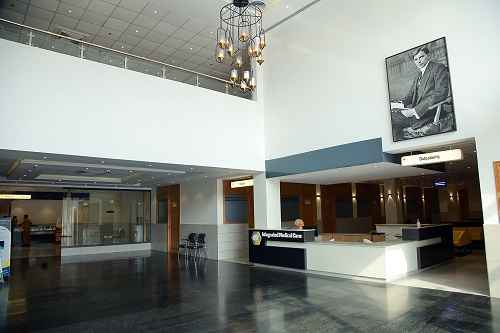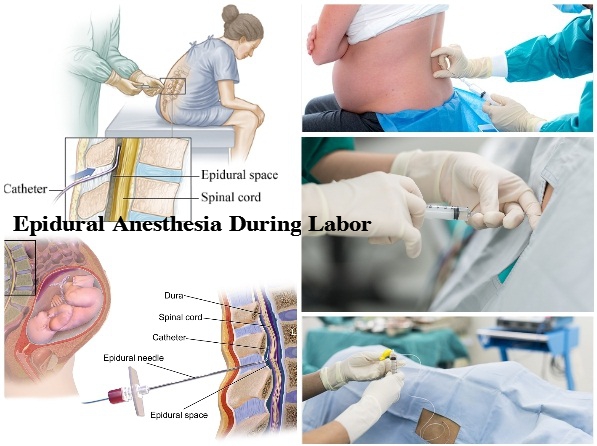- 31-Oct-22
A lovely journey begins with motherhood. Your unborn child's arrival completes the incredible bond you've enjoyed with them for the past nine months. On the other hand, giving birth to a child during the crossing over is terribly painful. New women frequently have fears about giving birth naturally. Modern medicine has made several ground-breaking discoveries that can assist in reducing the pain associated with childbirth to a tolerable level. Previously, an elective C-section was the only alternative accessible. But now, it is possible to have a normal delivery with "Epidural analgesia," or painless delivery.
What is Painless Delivery?
Using a type of localised anaesthesia that relieves pain during natural labour can result in painless delivery. An injection on the mother's lower back is used to deliver epidural anaesthesia. The medication takes 10 to 15 minutes to start working. This is a viable alternative for ladies who would otherwise choose a C-section but have a reduced tolerance for pain.
How is Epidural Anaesthesia Administered?
While getting the epidural, you might have to sit still with your back slightly arched. By putting a tiny tube into the lower portion of your spinal cord, the doctor will catheterize your lower back. In order to deliver the epidural anaesthesia during labour, the needle is taken out and the catheter is taped into place. When you are in active labour, your doctor will give you an epidural, which numbs your pelvis and everything below it while you're still conscious. You should be warned that it does not completely relieve pain, though.
The Advantages of Epidural
-
Women who have painless delivery have a chance to give birth naturally with only a few interventions. It has contributed to a decrease in the number of elective C-sections performed in Pakistan.
-
If a woman feels she can't handle the agony, is worn out from pushing or has an emergency that might call for an emergent C-section, she has the option of getting an epidural during labour.
-
It enables the mother to concentrate on giving birth by reducing pain. It is a relaxing aid and can minimise the tiredness and irritability that most women experience during childbirth, lowering the likelihood of postpartum problems.
-
By easing the pelvic and vaginal muscles, it facilitates the baby's effortless descent.
-
Additionally, it assists in decreasing the mother's blood pressure which otherwise may increase during labour to dangerously high levels.
Is it safe to take Epidural?
Doctors claim that epidurals relieve fatigue and irritability while also being safe for mother and child. Like any medical procedure, it might have unintended side effects but it also aids in helping women unwind and refocus on the labour process.
Why should you avoid an Epidural?
The effects of epidural are numbing. You will be restricted to your bed and unable to move around.
- Your delivery might take longer.
- You could require a catheter if you have trouble urinating.
- You can feel queasy and sick to your stomach.
- Your risk of having forceps or vacuum delivery may be increased.
Should you choose a Painless Delivery?
A pregnant woman is advised to build up her stamina, practise labour exercises and breathing methods and choose a birth partner in order to get ready for a typical delivery. With the correct support, you can successfully manage labour discomfort without receiving an epidural.
Epidural injection for delivery price in Pakistan:
IMC Hospital is the Best Hospital in Pakistan and has good services at the best price. Visit today and book your appointment at Integrated Medical Care Hospital (IMC Hospital).
Prof. Dr. Sarmad Masud
MBBS, FCA RCSI (Fellow of College of Anaesthesiologists Royal College of Surgeons in Ireland)
Specialities - Anaesthesia.
Areas of Focus - Anaesthesia, Critical Care, Acute Pain Service, Teaching & Training.
Introduction - Professor Dr. Sarmad Masud is a graduate of Allama Iqbal Medical College and completed his MBBS in 1994. He joined The College of Anesthesiologists of Ireland in 2001 for training in Anaesthesia & Critical Care. He was awarded the fellowship degree in the field of Anesthesiology & Critical Care in 2008 by The College. Prof. Sarmad has served in the most reputable institutions in Pakistan & Ireland. He has special interest in teaching, training, conducting workshops, critical care management, mentorship of under & post graduate students, quality control, formation & implementation of policies and protocols.

 Map
Map










